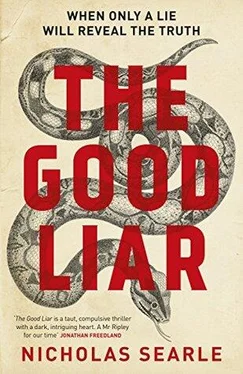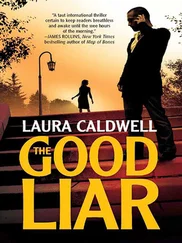that affirmed humanity, and acquiesced. It was her idea to change
her name to Barber by deed poll, but she knew it pleased John.
‘In practical terms it may make things easier,’ he said. ‘The
wounds from the war are still raw and even at our most prestigious
academic institutions misunderstandings occur. Besides, the admin-
istrators would no doubt mangle the name Schröder. You could of
course call yourself something even more commonplace, such as
Smith.’
‘No,’ she said. ‘Barber will do nicely.’
Elisabeth Barber went up to Cambridge University in September
1951, studying history. She knew that she owed her place in part to a beneficial view of her own history by the authorities and to a degree to John Barber’s contacts. But equally she knew that she was highly intelligent, that she had swept through the previous years avidly
consuming every piece of learning before her, and that academia
would play a vital part in her future life.
8
It was when she graduated that she understood for the first time
that she had become an adult. She had spent the previous three
years studying seriously, as young women needed to do if they
were to stand a chance against their male counterparts. She knew
she needed to be much more accomplished than her nearest male
competitor to succeed.
John Barber attended the ceremony and bought her a mediocre
lunch at the University Arms.
‘And what are your plans now?’ he asked over dessert.
‘I really don’t know,’ she replied, defeated by this innocuous and
obvious question. ‘I hadn’t thought. Relax for a while and then find something to do, I suppose.’
‘The Civil Service might be a good bet. They’re always on the
lookout for bright young things. Or I suppose there’s commerce.
234
1ST_9780241206935_TheGoodLiar.indd 234
05/05/15 5:32 PM
You’d be a very sought- after commodity, on the strength of your
degree alone. And when they meet you, they’re sure to be bowled
over. But I suppose I’m biased.’
‘Am I a complete idiot, John? I mean, I haven’t given it the first
thought. Not even for a moment.’
‘Well, there’s no rush.’
‘I could become a teacher,’ she said. ‘Yes, that might suit me very well. Or . . .’
‘Yes?’
‘Do you think I have it in me to be an academic of some sort? You
know, one of the provincial red- bricks. Nowhere as grand as here.
Might I just be able to make a go of it?’
A broad smile came to his face. ‘There’s no need for false mod-
esty. Of course it would be a possibility. More than a possibility. I’d have you down as a dead cert. Would you like me to have a word? I
do have contacts around the place, not just in Oxford.’
She looked at him quickly. ‘No. Please no. This is something I
want to do under my own steam. I have to find my own way. You do
understand, don’t you?’
‘Of course I do,’ he said, and smiled again.
She realized then that she had found herself, or sufficient of her-
self to live without consulting others or asking their permission.
Opportunities shimmered before her, tempered only by her own
modesty. She was not certain what she would do, but it would be
entirely she who determined it.
As things worked out, it was as easy as John had predicted.
She had already arranged an appointment with her tutor to thank
her for her help. Over tea she asked tentatively, ‘I wondered whether you might consider supporting me in an application for further
study?’
‘I was rather hoping you might ask me that,’ said the tutor, lean-
ing back on the battered leather couch. ‘Of course. I’d be delighted.’
‘Do you know what the process is?’
‘Process?’ she said. ‘Oh, no doubt there will be the odd form to
fill out. There may be an interview at some stage during the sum-
mer. But I rather think the important parts of the . . . process have 235
1ST_9780241206935_TheGoodLiar.indd 235
05/05/15 5:32 PM
been completed.’ She looked at Elisabeth and gave a smile before
continuing. ‘Of course we’ve informally discussed potential candi-
dates for postgraduate places in the Senior Common Room, and
your name comes up with regularity. You may take it as read that
you’ll be accepted. And you can be fairly sure a scholarship will also be forthcoming.’
9
Cambridge became her town, rather than simply the venue for her
education, as she came to inhabit her adult life. She made the rooms she had been allocated comfortable and began to buy cheap but
tasteful works of art in the market. She worked less frenetically and anxiously and in her spare time learned to cook. She regretted
not having had the opportunity to study a musical instrument,
remembering Charlotte, at eighteen an accomplished flautist with
prospects of a place at a conservatoire in a European capital. For
Elisabeth, it was now far too late to acquire a level of expertise that would satisfy her. Instead she consumed classical music avidly and
attended all the concerts she could.
Every inch of the quiet, benign town was hers. She explored its
alleyways and parks, now shunning the college life in which she had previously been immersed. She enjoyed exchanging gossip with
those she met on the communal stairways but little else of the fer-
vid intellectualism of the place. She made friends but preferred to meet them in pubs in the surrounding villages, reached by bicycle.
She continued to discover what she consisted of and what made her
happy and unhappy. Eight years earlier, the concept of happy or
unhappy would have been alien to her.
She was not a conventional student. She kept herself apart from
her fellow postgraduates and was to be seen only rarely in the Mid-
dle Combination Room of her college. She studied how her few
female peers dressed and chose differently. She began for the first time to say what she thought, rather than what she thought
she ought to think, as she built her thesis on the economic
236
1ST_9780241206935_TheGoodLiar.indd 236
05/05/15 5:32 PM
circumstances underlying the First World War. Her new supervisor,
once an iconoclast but by now a fully paid- up, sweaty, sherry- drinking old fart, viewed her as a dangerous quantity, which she took as a
compliment. It may have had something to do with the fumbling
pass he had made at her that she rejected, leaving him no scope to
fall back on ambiguity or misunderstanding.
There were, depressingly, other men too. The experience of
meeting them was dispiriting because, like her supervisor, they
seemed interested only in what she symbolized: an attractive young
woman and the promise of sex. Any attempt at intellectual inter-
course with her was superficial and patronizing, designed to nudge
her towards the other kind. And they knew so little, so very little, of this world. She rebuffed them steadfastly until she met Alasdair
McLeish, a graduate law student, a diffident Scot with dark Celtic
good looks.
What followed was as straightforward, low- key and sensible as
they were. Friendship was followed by a formal courtship and finally by an awkward visit by Alasdair to Oxford to see John Barber. The
awkwardness was largely Barber’s: he felt he had no locus in the
matter of Elisabeth’s choices. Things eased when Alasdair explained that this was a formality and a courtesy. If Barber had reacted
adversely he and Elisabeth would have married in any case. But
Читать дальше










![Nicholas Timmins - The Five Giants [New Edition] - A Biography of the Welfare State](/books/701739/nicholas-timmins-the-five-giants-new-edition-a-thumb.webp)

